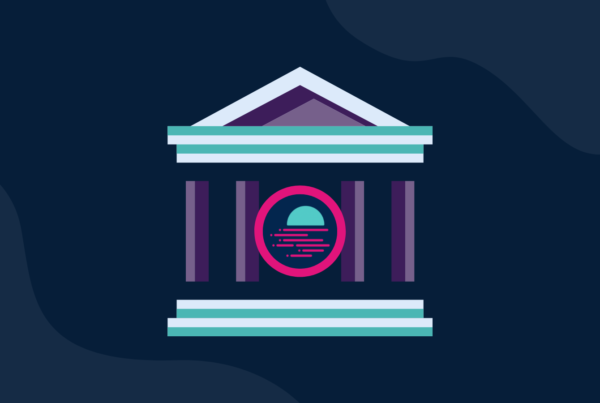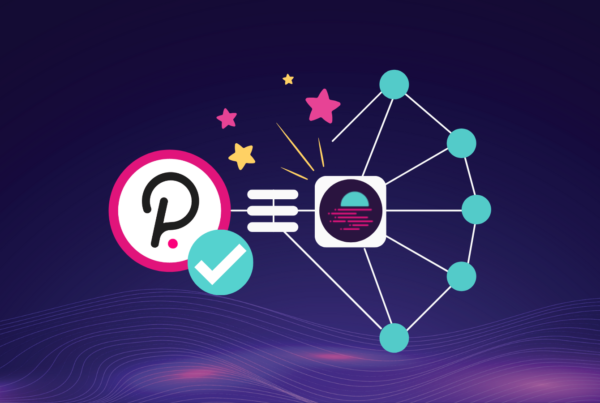After a community discussion and seven-day open voting period, a community proposal that outlines a new grants review and approval process has passed Moonbeam’s on-chain governance. The proposal effectively introduces new opportunities for community involvement and input in the grants that are issued by the Moonbeam Foundation on a go-forward basis.
The passage of this new initiative provides ways for the Moonbeam community to submit applications and proposals for grant funding, discuss these proposals, and — for the most sizable grants — vote on them. There are also two major new additions to the existing process: the establishment of a five-person Grants Committee that includes both Moonbeam Foundation and non-Foundation community members, as well as a method for the community to directly vote upon grant proposals over $150k. This new program went into effect immediately after the successful referendum and will run for six months. The new structure introduced by the community proposal will be revisited upon the rollout of Polkadot Governance v2, unless sooner amended by the community.
Moonbeam’s Interoperable Mission
Moonbeam is designed to serve as a hub of cross-chain activity with connected contracts at the core. Connected contracts are applications that are able to provide a superior user experience by allowing them to tap into many blockchains at once: they’re a special type of smart contract on Moonbeam that use cross-chain messages to facilitate the integration of and interaction with functions and data on remote blockchains. Using this messaging approach, connected contracts can access any user, asset, or function, regardless of which chain they are on.
A growing number of messaging transports are available to facilitate cross-chain interactions including Axelar, LayerZero, and XCM, Polkadot’s native cross-chain messaging system that is available to Moonbeam as a parachain on Polkadot.
This community-led proposal introduced changes that help the grants program better support projects making use of these next-generation capabilities as well as other innovations to strengthen the ecosystem and innovate the space.
The Grants Program
The grants program was introduced in January 2021 as a way to provide funding and support for teams building in the Moonbeam and Moonriver ecosystems. The goal of the program is to further the adoption, utilization, and development of Moonbeam as a premier destination for cross-chain connected smart contracts and applications. The pursuit of these goals are informed by the Moonbeam guiding principles include engagement, transparency, inclusivity, and working toward the greater good of the ecosystem.
Projects funded through the grants program are broad in scope and include the development of applications, infrastructure, and tooling, and education programs as well as project initiatives that bootstrap activity, adoption, and overall growth of Moonbeam.
Interim Grant Program Structure
The Interim Grant Program will last for six months unless amended before the end of this term. The program intends to provide a solution until the time that Polkadot Governance v2 is functional and the community decides how to move forward.
There are three levels of grants available from the Moonbeam Foundation. The approval process is dependent on the type and amount of grant sought.
Level 1: Expedited Grants
Amount: up to $50k
Approval Process: 2 of 5 Community Grants Committee members, with at least one Moonbeam Foundation Committee Grants Committee member approval
Fund Distribution: USD or USDC
Level 2: Larger Grants
Amount: $50k to $150k
Approval Process: 3 of 5 Community Grants Committee members, with at least one Moonbeam Foundation Committee Grants Committee member approval
Fund Distribution: USD, USDC, or GLMR
Level 3: Ecosystem Grants
Amount: $150k to $3 million
Approval Process: Community Grants Committee approval AND community voting approval
Fund Distribution: USD, USDC, or GLMR
Community Grants Committee
The Community Grants Committee is a group of five individuals charged with reviewing incoming grant applications and evaluating their merit, contributions to the ecosystem, and overall value to the network as a whole.
The Committee consists of two Moonbeam Foundation representatives and three community members outside of the Moonbeam Foundation who understand the priorities of the ecosystem.
Committee members have been nominated and approved as part of the Interim Grants Program Proposal in September 2022. Non-Foundation Community Grants Committee members receive monthly compensation for their work.
The Foundation Community Grants Committee members are Aaron Evans and Sicco Naets.
The Non-Foundation Community Grants Committee Member Nominees include Thiago Castroneves, Jim Farley, and Natalia Kovtun. More information about them can be found in the on-chain proposal.
How the Committee Approves Grants
For Level One or Level Two grant applications, the Committee represents the community in approving grant applications and is responsible for screening applications. At first, this is done via screening calls with teams to first determine if an application should move through the process. Then, once the preliminary application is accepted, the Committee will conduct further diligence into the project, concept, and grant asks to assess whether the application aligns with the community-approved grant guidelines and Moonbeam guiding principles.
Then the grant applications move to a vote. For Level One applications, two of the five Community Grants Committee members must vote to approve or reject the grant. If a majority votes “Aye”, the grant is implemented (Phase 5), and the process is complete. For Level Two applications, three of five members must vote to approve or reject the grant. In both instances, at least one Moonbeam Foundation member must participate.
For Level Three grants, the process and the Committee’s involvement are different. These grants require additional consideration for approval and include a community voting process.
First, applicants must submit their idea for community discussion and feedback. This is currently done through Polkassembly. Following the discussion, the applicant must submit the revised proposal along with a bond to the Community Grants Committee. The Committee will perform a review of the proposal with the authors, providing additional feedback and performing diligence. Once this step is completed successfully, the Committee will post the proposal for a public community vote, at which time the broader community can vote to pass or reject the grant.
A template and more detail on how these processes work is detailed in the community proposal.
Guidelines for Grant Applicants
The purpose of the grants program is to fund the development of projects and applications that contribute to the Moonbeam ecosystem. Passionate teams wishing to innovate and connect on Moonbeam should apply with proposals that fulfill unaddressed use cases on the network.
In addition to providing a strong application, applying teams should propose projects that adhere to the guiding principles and code of conduct, which are summarized below:
Moonbeam Guiding Principles
- Being inclusive to token holders that want to engage with Moonbeam and that are affected by governance decisions
- Favoring token holder engagement, even with views contrary to our own, versus a lack of engagement
- A commitment to openness and transparency in the decision-making process
- Working to keep the greater good of the network ahead of any personal gain
- Acting at all times as a moral agent that considers the consequences of action (or inaction) from a moral standpoint
- Being patient and generous in interactions with other token holders, but not tolerating abusive or destructive language, actions, and behavior and abiding by Moonbeam’s Code of Conduct.
Moonbeam’s Code of Conduct
Moonbeam fosters an open and welcoming environment. Participation in the ecosystem projects and the Moonbeam community is a harassment-free experience for everyone, regardless of age, body size, disability, ethnicity, sex characteristics, gender identity and expression, level of experience, education, socio-economic status, nationality, personal appearance, race, religion, or sexual identity and orientation.
Behavior that should be exemplified includes:
- Using welcoming and inclusive language
- Being respectful of differing viewpoints and experiences
- Gracefully accepting constructive criticism
- Focusing on what is best for the community
- Showing empathy towards other community members
Projects applying for grants will have a greater chance of success if they can demonstrate:
- Well-researched and tested ideas with examples of prior work
- Ideas differentiated from competitors or ideas that implement technology that does not yet exist in the ecosystem
- A team with strong technical background and experience in the project’s concept and the ability to deliver on set milestones
- A team that demonstrates an ability to maintain and grow the project
- A high-quality application with clear milestones and details
- A reasonable grant amount request
- Responsiveness throughout the application and diligence process
- Commitment to the Moonbeam ecosystem, ideally through demonstrated collaboration efforts
- Use of a connected contracts implementation approach
- Alignment with Moonbeam Guiding Principles and Moonbeam’s Code of Conduct
Teams that are ready to start a Level One or Level Two grant application can do so via this application form.




